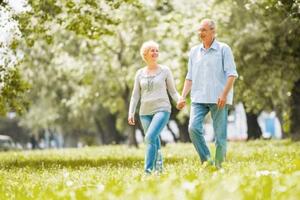
Article by Cindy Kuzman..
Some age-related changes, such as gray hair and wrinkles, are obvious.
But other shifts are occurring inside your body with each passing year. Your bladder and urinary system change with age, often in ways that aren’t desirable.
Understanding these changes and taking steps to cope can improve your health.
Infections Are Still Common
Roughly 10 percent of postmenopausal women experience a urinary tract infection each year. This rate isn’t as high as for younger women, 17 percent of whom report having a UTI every year. But the symptoms among older women can be different.
According to a recent study in Archives of Gerontology and Geriatrics, older women are more likely to experience strong urges to urinate, leakage, and lower back and abdominal pain. Meanwhile, younger women urinate more frequently and are more likely to feel pain and burning when they do so.
To ward off these painful infections, drink plenty of water—six to eight 8-ounce glasses per day—and wear cotton underwear. Women should wipe from front to back after using the toilet and should empty the bladder after sexual relations.
Your Urethra May Become Blocked
For both men and women, changes in the reproductive system are linked to bladder troubles. In men, the prostate—the walnut-sized gland that surrounds the urethra—often enlarges as they get older. For women, weakened pelvic muscles may lead to the bladder’s slipping out of position, which could lead to difficulty emptying the bladder.
Both these problems can block the flow of urine. See your doctor if you have symptoms linked to an obstruction. These include abdominal pain, difficulty passing urine, or, in some cases, bleeding or discharge.
Your Bladder Wall Stiffens
The muscles lining your bladder become weaker and less flexible with age. This loss of strength and stretchiness means your bladder may not empty fully when you go to the bathroom. If you’re having problems with voiding fully, a specialist such as a urologist or urogynecologist may be able to help.
Leakage and Stones Become More Frequent
It’s true that incontinence—leaking urine when you don’t intend to—is more common the older you get. But you don’t have to accept it as a normal part of aging. Talk with your doctor about whether lifestyle changes, medications, or surgery can help relieve your symptoms.
Aging also increases your risk for bladder stones—painful, hard crystals of minerals that build up inside the organ. They’re much more common in men than women and usually occur along with an infection or enlarged prostate.
Some small stones can be passed by drinking water. Others can be removed using a small tube that passes through the urethra, or during surgery.
Your Risk for Cancer Increases
Bladder cancer is the sixth most common type of cancer in the United States, affecting far more men than women. But everyone’s risk increases with age. Smoking, chemical exposure in the workplace, and family history also boost your odds.
Symptoms of bladder cancer include blood in your urine, pain when you urinate, having to bear down to empty your bladder, and low back pain. These signs can also be caused by many other health problems. If you experience them, tell your doctor, so he or she can determine the cause and begin treatment if needed